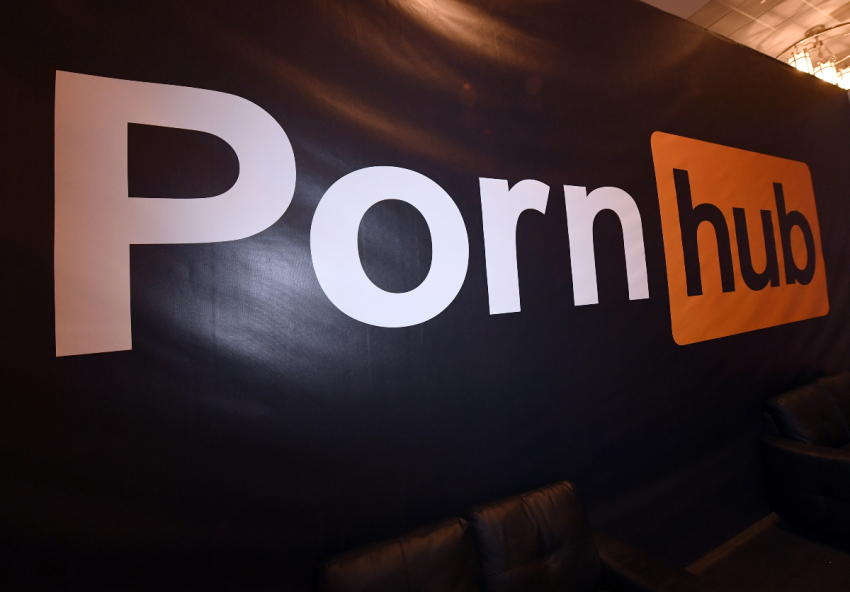Judge denies porn giant MindGeek's motion to dismiss child sex abuse survivors' lawsuit

A federal judge in Alabama has allowed a class-action lawsuit by survivors of child sexual abuse against the parent company of popular pornography website Pornhub and other porn websites to move forward.
U.S. District Judge L. Scott Coogler of the Northern District of Alabama, Western Division, rejected a request on Wednesday by porn giant Mindgeek to dismiss the lawsuit filed on behalf of child sexual abuse survivors over videos showing their abuse on MindGeek’s websites.
MindGeek owns several of the world’s most viewed pornography websites, including Pornhub, and YouPorn.
Coogler rejected the argument that MindGeek is protected through Section 230 of the Communications Decency Act, which grants a level of immunity for video hosting websites and social media platforms with third-party content.
“[T]he Court finds that Plaintiffs have plausibly alleged that Defendants indeed materially contribute to the provision of child pornography on their platforms,” wrote Coogler.
“Defendants exert extensive control over the development of pornographic content on their websites. Defendants have instructed uploaders and users, down to a granular level, on how to create content, and has made these instructions a condition of use for Modelhub members and Content Partners.”
The judge added that “if Plaintiffs’ allegations are true, Defendants, through Pornhub and other sites, host and harbor child pornography — i.e., knowingly receive and possess it —which are illegal acts under the United States Code and which are prosecuted in proceedings against individuals every day.”
Dawn Hawkins, CEO of the National Center on Sexual Exploitation, an advocacy group that spreads awareness of the connection between sex trafficking and the porn industry, said in a statement that she thinks the ruling put the abuse survivors “one step closer to justice.”
“We are encouraged that MindGeek-owned Pornhub will finally be held to account for profiting from child sex abuse, rape, and sex trafficking material,” said Hawkins.
“This is the second lawsuit against Pornhub that a judge has allowed to proceed, despite MindGeek’s claim that it has legal immunity under CDA Section 230. This ruling represents a complete rejection of such claims.”
In February 2021, two child sex trafficking victims filed suit against Pornhub and Mindgeek over videos showing their abuse being uploaded to the pornography website.
“Sex traffickers and the Defendants worked together to earn a profit from commercial sex acts and child pornography involving the Plaintiffs and Class members,” stated the complaint, which did not list the names of the two plaintiffs.
“MindGeek’s platform traditionally made it easy for traffickers, rapists, or would-be criminals to go undetected as account holders or managers who would control and recover any associated compensation.”
According to NCOSE, Jane Doe No. 1 was 16 years old when she was drugged and raped by a man in Tuscaloosa, an act that was filmed. The man entered an agreement with MindGeek to share profits from views and downloads of the film. The lawsuit says that MindGeek reviewed and disseminated the images and videos depicting the child rape without trying to verify the victim's age or inquire if she was a victim of trafficking.
For Jane Doe No. 2, NCOSE reports that she was a minor when a trafficker forced her to participate in sexually explicit videos, which were uploaded and disseminated by websites owned by MindGeek, including Pornhub. MindGeek is accused of not taking measures to verify the victim's identity or age.
In response to a New York Times report detailing how minors have had videos of their abuse uploaded to Pornhub, the website announced new content standards in December 2020.
These standards include allowing only verified users to upload content, stopping users from downloading most videos and building relationships with nonprofits to flag videos with illegal content.
“At Pornhub, nothing is more important than the safety of our community. Our core values such as inclusivity, freedom of expression and privacy are only possible when our platform is trusted by our users,” the website stated in 2020.
“This is why we have always been committed to eliminating illegal content, including non-consensual material and child sexual abuse material. Every online platform has the moral responsibility to join this fight, and it requires collective action and constant vigilance.”
After the new standards were announced, Pornhub removed millions of videos and confessed to there being at least 118 confirmed instances of child sexual abuse material.



























